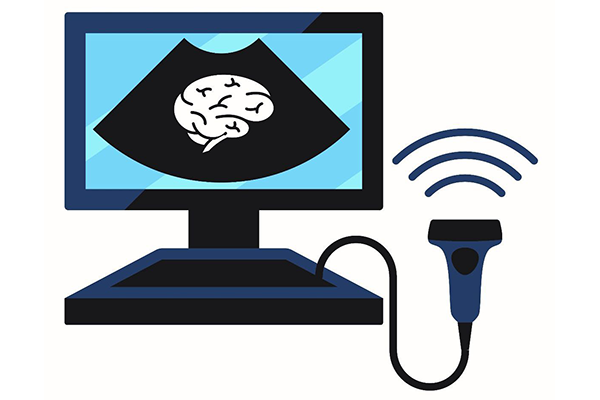Beginner's Guide to POCUS for Medical Students
Fathima Haseefa, MSIV – University of Arizona College of Medicine-Phoenix
EMRA MSC Legislative Coordinator, 2022-2023
Are you a medical student interested in point-of-care ultrasound? Don’t know where to start? The use of POCUS has grown significantly over the last few decades. It serves as a cost-effective tool for rapid, real-time assessment of a variety of pathology and helps guide decisionmaking, such as administration of IV fluids based on IVC collapsibility. POCUS has also been shown to increase patient satisfaction and trust in the physician’s assessment. Without further ado, let’s delve into some steps you can take as a medical student to learn about POCUS!
Join the EMRA Ultrasound Committee to meet other ultrasound enthusiasts and mentors and get involved in projects and event planning for the ACEP Scientific Assembly and more. The committee has hosted talks by renowned ultrasound experts on several applications of this imaging modality, such as nerve blocks, and guidance on pursuing an ultrasound fellowship. These sessions have been recorded and are available to listen to on the committee webpage. If you are looking for reading material, there are a variety of ultrasound articles on EM Resident, including a POCUS For the Win case series.
Check out these other great FOAMed resources:
Podcast Highlights
The Ultrasound Podcast is great to listen to during commutes or workouts if you want to hear bedside ultrasound tips, interesting cases, and various applications, such as use of ultrasound in cardiac arrest. Available on Apple and Google Podcasts.
Ultrasound G.E.L. (Gathering Evidence from the Literature), hosted by Dr. Michael Pratts, presents the latest evidence on POCUS topics, such as using ultrasound to confirm neonatal central line positioning, in an easily digestible manner. Available on Apple and Google Podcasts.
Website Highlights
Core Ultrasound, created by Dr. Jacob Avila and his team, incorporates 5 Minute Sono videos on topics including basic knobology and how-tos for a variety of ultrasound scans. While you’re perusing the site, challenge yourself with the Ultrasound of the Week!
The POCUS Atlas is a fantastic resource for ultrasound clips and still images, searchable by organ system and further by tags. Also available as an app on iOS and Android.
Books
Introduction to Bedside Ultrasound by Drs. Matt Dawson and Mike Mallin is a two-volume series that covers techniques for most common scans and includes videos and demonstrations of pathology. Available for free on Apple Books.
While there are a plethora of resources available on POCUS and this is not an exhaustive list by any means, we hope this will help you get started, learn how to incorporate POCUS into patient care, shine on your EM sub-Is, and maybe even consider an ultrasound fellowship!
References
- Rice JA, Brewer J, Speaks T, Choi C, Lahsaei P, Romito BT. The POCUS consult: How point of care ultrasound helps guide medical decision making. IJGM. 2021;Volume 14:9789-9806.
- Andersen CA, Brodersen J, Rudbæk TR, Jensen MB. Patients’ experiences of the use of point-of-care ultrasound in general practice – a cross-sectional study. BMC Fam Pract. 2021;22(1):116.
- Lin MJ, Neuman MI, Monuteaux M, Rempell R. Does point-of-care ultrasound affect patient and caregiver satisfaction for children presenting to the pediatric emergency department? AEM Educ Train. 2018;2(1):33-39.
Related Content


Aug 17, 2022
Beginner's Guide to POCUS for Medical Students
Are you a medical student interested in point-of-care ultrasound? Don’t know where to start? The use of POCUS has grown significantly over the last few decades. It serves as a cost-effective tool for rapid, real-time assessment of a variety of pathology and helps guide decision making, such as administration of IV fluids based on IVC collapsibility. POCUS has also been shown to increase patient satisfaction and trust in the physician’s assessment. Without further ado, let’s delve into some steps you can take as a medical student to learn about POCUS!




